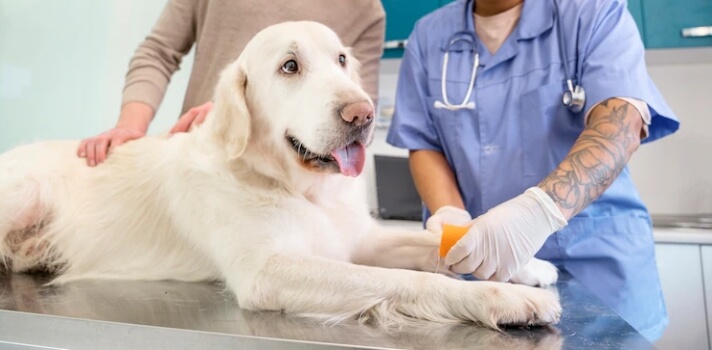Heartworms are parasites that are dangerous to various types of animals, especially dogs. They’re most common in the southern and eastern regions of America but can be found in all 50 states. The infection can be deadly for pups if it goes unnoticed. The following guide answers some basic questions about heartworms so you can add prevention and treatment methods to your pet care routine to keep your furry friend safe and healthy for years to come.
4 FAQ About Heartworms in Dogs
What are heartworms, and how are they contracted?
These long, thin parasitic roundworms live in a dog’s heart, lungs, and associated blood vessels. They take about six to seven months to reach full maturity and resemble strands of spaghetti. Males grow to be 4 to 6 inches long, while females can reach about 10 to 12 inches in length. A parasite grouping living inside a dog is called a “burden” and can contain anywhere from 1 to 250 worms. Pups usually contract them when heartworm larvae are transferred from an infected animal to an uninfected host through a mosquito bite.
What are the symptoms?
Heartworms damage the organs of infected dogs and reduce the efficiency of the heart. In the first stage of the disease, a canine often does not exhibit symptoms or only coughs occasionally. As the condition progresses, a pup will start coughing persistently and get tired quickly during physical activity. They may also lack an appetite and start losing weight. Eventually, they may have trouble breathing and be at risk of heart failure. In the final stage of infection, there are often so many worms blocking the entrance to a dog’s heart that blood can’t flow back in, which can be fatal.
How is the disease treated?
Dogs need two medications to treat a heartworm infection. The first is an injection that kills the adult worms, and the second is a skin ointment that kills the larvae throughout the bloodstream. If your furry friend is in the late stages of the disease, they may need emergency surgery to remove the worms. During the course of treatment, most pups also have to be crated and kept calm to reduce their activity levels and keep their hearts and lungs from having to work overtime.
How can it be prevented?
Preventive heartworm medication is an essential part of pet care. Veterinarians can administer an injection every six to 12 months to keep your pup healthy. You can also apply a skin ointment monthly or give your pooch medicated treats and tablets once a month.
If you need preventive pet care to protect your dog from heartworm disease, turn to Wards Corner Animal Hospital in Loveland, OH. We have been serving the Cincinnati area for over 35 years. Our team does house calls, and our practice is the area’s only emergency veterinarian. Call (513) 683-2883 to make an appointment.




